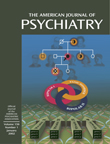Scientific Foundations of Cognitive Theory and Therapy of Depression
This book details the scientific research that has been done to document, support, prove, disprove, and/or explain Aaron Beck’s cognitive theory of depression. Although the word “therapy” is included in the title, this book is not about therapy, nor is the word “therapy” included in the index or any of the section titles. It has 54 pages of references. Aaron Beck is listed as the lead author in 41 of the references, although many of his papers and books are on applications of cognitive therapy rather than scientific studies of the validity of the constructs of cognitive theory.
The authors, to their credit, describe the evolving process of change and modification of the cognitive theory of depression in response to questions, criticisms, and new findings since the early 1960s, when Beck published his initial formulations. For example, complicating research on depression, the authors note that “pure” depressive states may be quite rare, with up to 75% of depressed patients showing comorbidity. Anxiety disorders co-occur in up to 50% of depressed individuals. Other changes that modified the Zeitgeist of cognitive behavior theory were Beck’s incorporation of Bandura’s social learning theory concepts, which rejected the strict and oversimplified stimulus-response assumptions of behaviorism; aspects of Seligman’s learned helplessness model; and Albert Ellis’s rational emotive therapy, which included the notion that irrational beliefs and negative thinking underlie psychological disturbances. As further research cast doubt on some of Ellis’s ideas, rational emotive therapy became less a part of Beck’s cognitive theory.
Beck rejected the psychoanalytic concept of inwardly directed anger or retroflexed hostility as important constructs in depression, having determined that they were not well supported by clinical studies. He evidently did not view the patient’s “conscious negative verbalizations” and/or suicide as retroflexed hostility.
The research of Beck and his followers described in this book has struggled for years with the question of what came first, the chicken or the egg. Do cognitions stimulate emotions or do emotions lead to particular cognitions? Are persistent negative schemata depression or does depression bring forth negative schemata?
The authors and their critics raise the persistent question of whether laboratory research with sharply defined questions and fairly simple designs leading to clearcut answers can explain what goes on in the uncontrolled, naturalistic real-life situation. The authors correctly conclude they need more ecologically valid and powerful methodologies to answer these questions.
For example, cognitive theory does not explain why certain negative ideas in depression persist in the face of energetic and concerted logical attack. It does not address the impact of persistent correction of faulty cognitions on patients in general or on the self-esteem of depressed individuals in particular or the function of faulty cognitions or constructs in the patient’s inner world of being. For example, do they represent enduring attachments to important figures that are tied to the patient’s sense of integrity or are they part of a magical belief system that the patient is convinced represents the pathway to ultimate redemption?
This is an honest book as far as it goes, but it is persistently and perennially one “why” away from providing the reader with a truly profound understanding of major depression.



